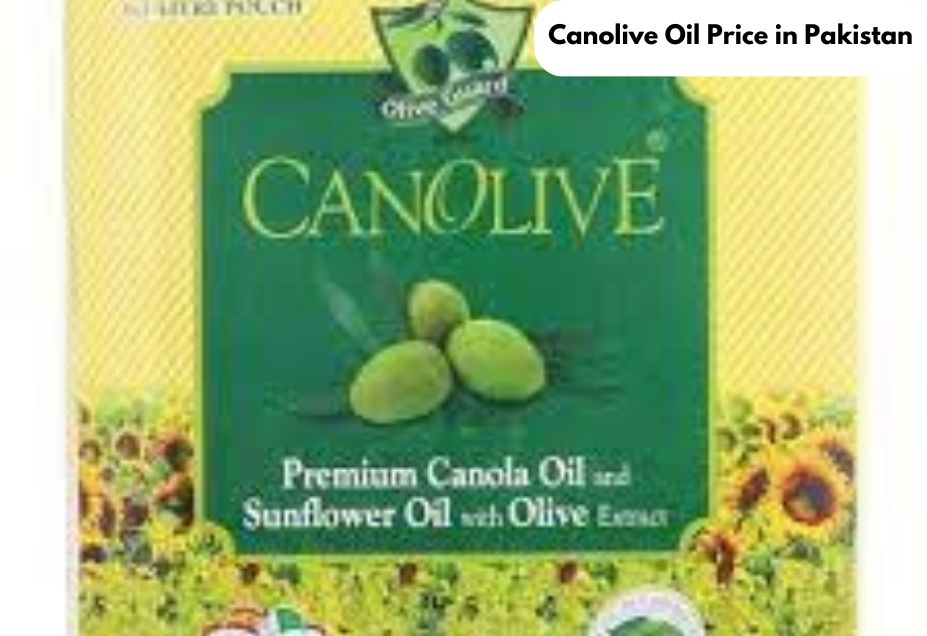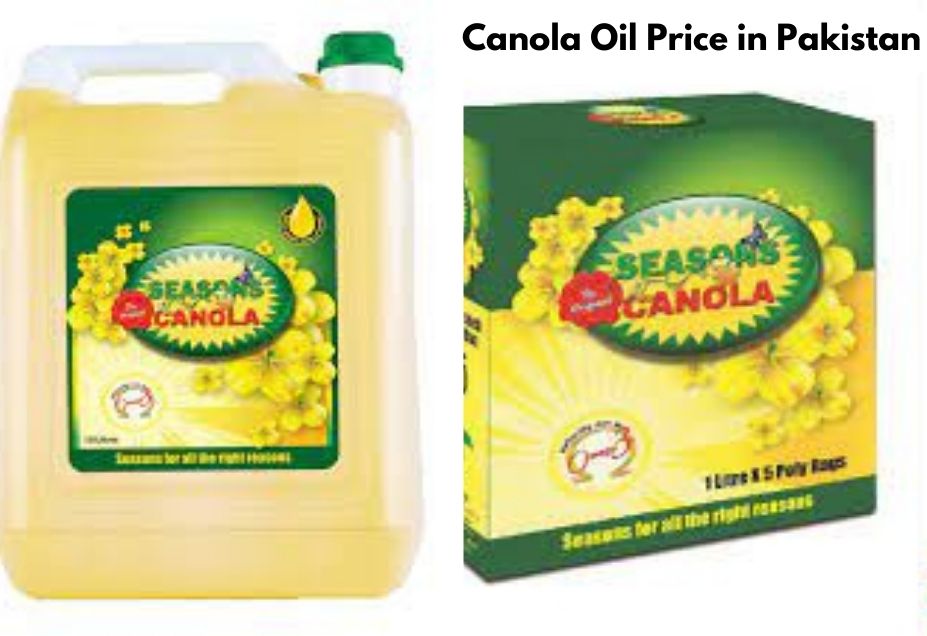Canolive Oil Price in Pakistan (Latest Guide)
In Pakistan, Canolive oil is a well-liked and healthy option with prices that differ based on where and how much you buy. The price of a 1-liter pouch of Canolive Oil is Rs. 655 while the price of a 1-liter bottle of Canolive Premium Canola Oil is Rs. 545. If you go for a bigger 3-liter bottle of Canolive Canola Oil, it will cost you Rs. 2025.
Canolive oil is a special mix of canola, sunflower, and olive oils, created in partnership with Genosa from Spain. This blend gives you the health perks of olive oil, known for guarding against conditions like diabetes, hypertension, and certain cancers. It’s a more budget-friendly and tasty option for Pakistani cooking.
The price of Canolive oil, just like other cooking oils, depends on a few things like the cost of raw materials, production, and importation, as well as how much people want it. Even with these factors, Canolive oil stays a top choice for Pakistanis because of its health benefits and how well it fits into local cooking.

Canolive Oil Prices in Pakistan
Canolive oil prices in Pakistan change based on where and how much you buy. For instance, you can get a 1-liter pouch for PKR 655 at GrocerApp, but Springs Stores sells it for a bit less at PKR 636. If you’re after a larger amount, like a 4.5-liter bottle of Canolive Canola Oil, it costs PKR 2,915. And for those thinking about buying a bunch, Carrefour Pakistan has a deal with five 1-liter pouches of Canolive Premium Canola Oil for PKR 2,930.
| Quantity | Price (PKR) |
| 1 Liter | 513 |
| 3 Liters Bottle | 2565 |
| 5 Liters Pouch Pack | 2930 |
Factors Influencing Canolive Oil Prices in Pakistan
The cost of Canolive oil in Pakistan is influenced by several important things:
Import Dependency and Currency Devaluation: In Pakistan, we rely a lot on importing edible oil, and when the value of our currency drops (what we call devaluation), it makes producing oil more expensive. This, unfortunately, leads to higher prices for consumers.
Global Oil Supply: Changes in the amount of oil produced worldwide can affect prices here in Pakistan. So, if big oil-producing countries increase production, prices might go down, and if they decrease production, prices might go up.
OPEC Decisions: What the Organization of the Petroleum Exporting Countries (OPEC) decides about how much oil to produce can shake up the global oil market. These decisions have a say in how much we pay for oil in Pakistan.
Economic Factors: When the world economy slows down, people generally use less oil, and that can mean lower prices. But when the economy is booming, demand goes up, and so do prices.
Exchange Rates: The relationship between our currency (the Pakistani Rupee) and the U.S. Dollar matters because oil is often traded in dollars. If our Rupee gets stronger, oil imports can become cheaper, possibly bringing down prices.
Seasonal Demand: Just like certain foods are more popular in different seasons, oil has seasons too. When demand is low, prices might drop.
Geopolitical Factors: Politics in places that produce a lot of oil can mess with the supply and cause prices to jump up and down.
Technological Advancements: If we find better ways to get energy without using as much oil, that can reduce how much oil we need, and that usually means lower prices.
Domestic Production and Taxes: If we don’t produce a lot of oil ourselves and we tax the imports, that can add to the cost and make oils like Canolive more expensive.
All these things mix together to decide how much you pay for Canolive oil here in Pakistan. It’s like a big puzzle where every piece affects the final picture you see at the store.
Comparison of Canolive Oil with Other Oils
When it comes to Canolive oil, a mix of canola and olive oils, let’s compare it with pure olive oil and canola oil, considering the cost, nutrition, and how you use it.
Cost: Olive oil usually costs more than canola oil. For example, a 32-ounce bottle of extra virgin olive oil might be twice as pricey as canola oil. Canolive oil sits in the middle since it’s a blend of the two.
Nutrition: Both olive oil and canola oil pack healthy unsaturated fats, but they differ in their fat makeup. Olive oil has more monounsaturated fats (72%), which are great for your heart as they lower the ‘bad’ cholesterol. On the flip side, canola oil has more polyunsaturated fats (26%), also good for your heart. Canola oil is also lighter on saturated fat (7%) compared to olive oil (15%). However, olive oil brings antioxidants and anti-inflammatory stuff to the table, making it a top choice for reducing the risk of chronic diseases.
Usage: The oil you pick depends on what you’re cooking. For baking, canola oil is often the go-to due to its neutral flavor. When roasting or sautéing veggies, olive oil is a popular choice for that rich Mediterranean taste. Canolive oil, being a mix, gives you a balance of flavors and can be used in various cooking styles. It’s like having the best of both worlds.
Health Benefits of Olive Oil and Canola Oil
Olive oil is renowned for its many health perks. It’s rich in polyunsaturated fats, good for your heart, boosts brain health, and packs a bunch of antioxidants. Plus, it’s linked to lowering the risk of chronic diseases, thanks to its high antioxidant and anti-inflammatory stuff.
Canola oil, while not as packed with nutrients as olive oil, still scores as a heart-healthy choice because of its high monounsaturated and polyunsaturated fats. People often suggest it for high-heat cooking since it can handle the heat well.
But here’s the deal: Both oils bring health goodies, yet they’re best enjoyed as part of a balanced diet, not as the only source of fats. It’s like having them in your team of healthy choices, not the solo players.
Conclusion
Canolive oil, available for PKR 655 for a 1-liter pouch, brings together a mix of affordability and health perks for consumers in Pakistan. It merges the nutritional strengths of olive oil with the budget-friendly nature of canola oil.
This combination is crafted to match the taste buds of Pakistani cuisine, making it adaptable for use in different dishes. Even with changes in prices because of economic factors, Canolive oil stands out as a wise choice for folks looking for a cooking oil that’s good for the heart without putting a dent in their wallets.





